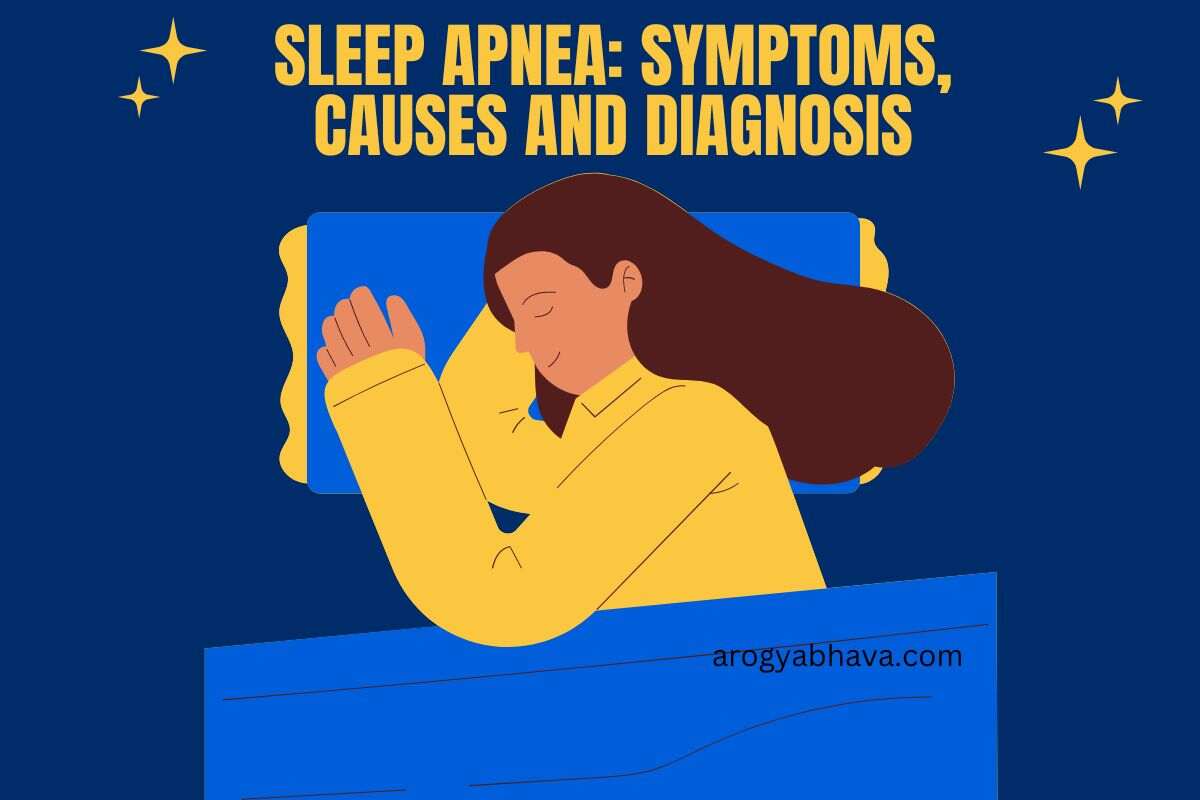Sleep Apnea: Symptoms, Causes and Diagnosis

Sleep Apnea: Sleep is described as the quickly reversible state of not moving and the highly reduced responsiveness of sensory neurons. Sleep is very important for the maintenance and repair of the neuronal connections and their changes that are involved in the memory and the learning process. A less and excessive amount of sleep is harmful to individuals and causes some sleep disorders such as sleep apnea is the one.
What is Sleep Apnea?
Sleep Apnea is a sleeping disorder when restlessness or difficulties are faced in breathing during sleep or we can say breathing continuously stops and starts. It occurs when the muscles of the throat back relax in an excessive amount to allow normal breathing and these muscles support the soft palate, tonsils, and tongue.
Types of Sleep Apnea
There are mainly two types of sleep apnea:
- Obstructive sleep apnea and
- Central sleep apnea
Obstructive happens when the throat muscle got to relax and then blocks the flow of air into the lungs, on the other hand, central is when the cerebral cortex does not send proper signals to the breathing control muscles.
Causes of Sleep Apnea
Causes of sleep apnea include:
- Depression
- Anxiety
- Excess weight
- Hereditary
- Consumption of cigarettes, some sedatives, alcohol, etc.
- Narrow airways
- Overthinking
Sleep Deprivation and Hypersomnia
These are some of the factors that can also cause sleep deprivation due to less sleep. And, sleep deprivation shows the described effect on cognitive functioning. Excessive sleep causes the disease hypersomnia.
Symptoms of Sleep Apnea
Sleep apnea shows some symptoms like:
- Loud snoring occurs when the air flows past relaxed tissue in the throat and the palate is too soft and then this tissue vibrates as we breathe which leads to a harsh sound, called snoring. In this, when you sleep then inhalation is quite difficult from the nose and automatically your mouth gets open which leads to snoring.
- Lack of sleep or difficulty in having sleep known as Insomnia is another symptom.
- Got awakened with a dry mouth and with a headache.
- Feel Irritated, when you do not sleep properly.
- Choking during sleep.
- When sleep is improper, you cannot pay proper attention to your daily work.
- Due to sleep deprivation, some symptoms are shown like slow decision-making, lack of energy, low memory, slowed thinking, etc.
- Prolonged sleep deprivation shows sleep inertia which arises after awakening, can happen up to four hours after getting awake from sleep and is defined as decreased performance and increased disorientation in lifestyle.
Diagnosis and Treatment
Diagnosis of sleep apnea/sleep apnea diagnosis machines: A patient who is suffering from this disorder is usually tested at night and can also be done at day time for those who sleep during the day.
Sleep apnea disorder can be diagnosed by the sleep study which is of two types:
1. Polysomnography
Polysomnography is a test that happened when the patient is fully asleep. It records the activities that occur during your sleep cycle like brain waves, skeletal muscle activities, heart rate, breathing rate, etc.
2. The home-based portable monitor:
The home-based portable monitor is used to measure heart rate, breathing rate, and airflow during sleep at home.
Apnea-Hypopnea Index (AHI) Scale
The loss of breath during sleep apnea and the partial loss of breath which is called hypopnea is determined by the Apnea-Hypopnea Index (AHI) scale.
Treatments for sleep apnea
For the treatment of sleep apnea, you should see a doctor for sure.
- If you have excess weight, lose some weight through exercise or dieting.
- Some nose pins are available for snoring problems, making them useful.
- Use of a breathing device like a CPAP (continuous positive airway pressure) machine which provides constant airflow in your throat to keep the air passage open during inhalation to avoid breathing stoppage.
- A new device system is discovered which is used to treat mild to severe obstructive sleep apnea – Inspire Upper Airway Stimulation, is an implantable nerve stimulator that detects a patient’s breathing pattern and maintains open air passage with nerve stimulation.
Also Read: Sleep and Mental Health: The Importance of Good Sleep